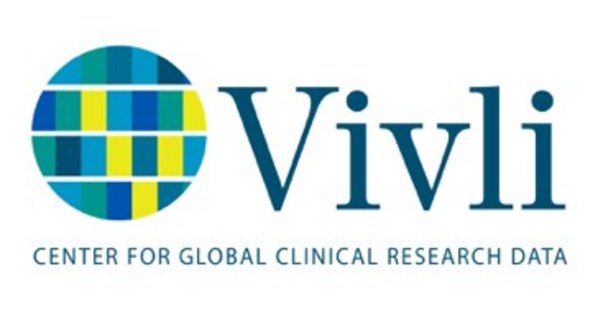Launch of groundbreaking data-sharing initiative to better understand antimicrobial resistance
Leading Pharmaceutical Companies Join Vivli’s New Global Registry to Accelerate Research into Antibiotic-Resistant Bacteria
CAMBRIDGE, Mass., June 21, 2022 /PRNewswire/ — The Antimicrobial Resistance Registry, unveiled today by the non-profit organization Vivli, enables biopharmaceutical companies to share susceptibility data to pathogens causing disease for the first time ever. infections on a single online platform, marking a crucial step in tackling the growing global health threat of antimicrobial resistance. With the active participation of leading pharmaceutical and biotechnology companies, researchers will be able to use the AMR Registry to translate masses of antimicrobial resistance surveillance data into meaningful actions that save lives and preserve antibiotics for future generations.
Infections caused by antimicrobial resistant bacteria are on the rise after years of overprescribing antibiotics. Today, diseases that were once easily treatable with antibiotics are becoming increasingly difficult to cure, and infections caused by antibiotic-resistant bacteria are costing billions of dollars in preventable healthcare dollars. According to the latest figures from the GRAM report, nearly 5 million people have died worldwide with an antimicrobial resistant infection. If left unchecked, the scale of antimicrobial resistance will quickly exceed what we’ve seen with COVID-19, with deaths reaching 10 million a year by 2050, according to the United Nations.
Biopharmaceutical companies routinely conduct surveillance of all new antimicrobials to monitor susceptibility to pathogens of interest, generating large volumes of high quality data. Currently, there is no easy way for researchers to access this raw data or to combine and analyze multiple datasets from industry. The AMR Registry will allow pharmaceutical organizations to easily and securely share their data with researchers, national governments, and multilateral organizations such as the United Nations, CDC, and World Health Organization. With robust and reliable industry data, all accessible in one place, scientists will be able to better map key resistance patterns and identify the emergence of new antibiotic-resistant pathogens. Research insights will also inform decision-making around antimicrobial use, shape policies to stop the spread of resistant pathogens, and drive innovation around new antimicrobial drugs.
“Our understanding of how to control antimicrobial resistant infections and how best to protect human health depends on better access to surveillance data. Now, with the AMR Registry, we have an early warning system for one of the greatest public health threats we face,” said AMR Registry Scientific Advisory Board Chair Marc Mendelson, PhD, Professor of Infectious Diseases and Head of the Division of Infectious Diseases and HIV Medicine at Groote Schuur Hospital, University of The cap. “Data from biopharmaceutical companies is a critical missing link in AMR surveillance, making research enabled by the AMR Registry essential to mitigating the AMR pandemic and protecting antibiotic efficacy now and in the future. the future.
Some of the companies that have pledged to provide their data to the AMR Registry include Pfizer, GSK, Johnson & Johnson, Merck, Paratek, Shionogi & Co., Ltd. and Venatorx Pharmaceuticals. Viatris joined as a supporter of the AMR registry.”
In 2016, more than 100 biopharmaceutical companies and trade associations signed the Davos Declaration on Antibiotic Resistance and subsequently released the industry roadmap for progress in tackling antimicrobial resistance ahead of the high-level meeting. of the United Nations General Assembly (UNGA) on antimicrobial resistance, committing to sharing surveillance data to make it accessible to public health organizations and healthcare professionals. With the AMR Registry, industry can now fulfill these commitments, help contain the risk of AMR and advance scientific knowledge.
“We need urgent action to avert a wave of antibiotic-resistant bacteria,” Vivli’s chief executive said. Rebecca Li, doctorate. “By making data freely accessible, industry is making a crucial contribution to advancing science and helping us anticipate the next pandemic.”
The AMR Registry is guided by a Scientific Advisory Board comprised of influential leaders in antimicrobial resistance and global health, including Henry Kajumbula, MD of Makerere University College of Health Sciences; Trudie Lang from the Nuffield Department of Medicine; Marc MendelsonPhD, Groote Schuur Hospital, University of The cap; Arjun Srinivasan, MD, Centers for Disease Control and Prevention; Janet Midega, PhD, of Wellcome; and Andy Stergachis, PhD, of University of Washington. The AMR Registry was made possible by an initial seed grant from the Wellcome Trust.
Learn more at www.amr.vivli.org
About Vivi
Vivli is a non-profit organization working to advance human health through knowledge and discoveries gained through data sharing and analysis. Data sharing initiatives include the Antimicrobial Resistance Registry for RAM monitoring data and the Vivli Platform for clinical trial data. Vivli acts as a neutral intermediary between the data contributor and user and the data sharing community at large. For more information, visit www.vivli.org and follow us on Twitter @VivliCenter.
About Welcome
Wellcome supports science to solve the pressing health issues facing everyone. We support discovery research on life, health and well-being, and we address three global health challenges: mental health, infectious diseases and climate and health.
Contact:
Rebecca Li
978.804.4980
[email protected]
SOURCE Vivli


Comments are closed.